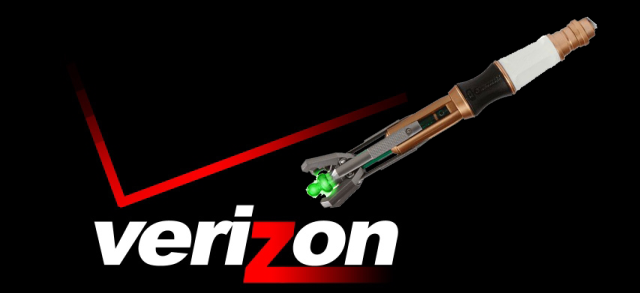
Perhaps Verizon was a bit hasty in its decision to stop growing its FiOS TV and broadband Internet business in favor of wireless partnerships with big cable companies. U.S. regulators have launched a probe into Verizon’s recent wireless spectrum agreements,which could leave the largest wireless carrier walking away empty-handed.
[aditude-amp id="flyingcarpet" targeting='{"env":"staging","page_type":"article","post_id":367973,"post_type":"story","post_chan":"none","tags":null,"ai":false,"category":"none","all_categories":"business,entrepreneur,media,mobile,","session":"A"}']As VentureBeat previously reported, Verizon will pay Comcast, Time Warner and Bright House $3.6 billion to license a portion of wireless spectrum owned (but not in use) by the three cable companies. In return, the cable companies will cross-market Verizon’s phone, video, Internet and cell-phone services to its customers. Verizon also decided to halt the build out of FiOS, which is a direct competitor to the primary services offered by those cable companies. For Verizon, building a broadband Internet infrastructure is most likely more expensive and less profitable than growing its wireless business.
However, Verizon’s deal with the cable companies is now under investigation by the U.S. Department of Justice, reports Bloomberg. The DOJ thinks the deal has the potential to hurt competition in the wireless and cable industries. Honestly, it’s hard to make a case against the DOJ’s statement.
AI Weekly
The must-read newsletter for AI and Big Data industry written by Khari Johnson, Kyle Wiggers, and Seth Colaner.
Included with VentureBeat Insider and VentureBeat VIP memberships.
The wireless spectrum Verizon is obtaining from the cable companies was licensed out by the government with the intention that it promote additional competition in the wireless service market. This agreement basically does the opposite of that — allowing Verizon to build out its high-speed LTE network and increase the visibility of its existing services. As for Comcast, Time Warner and Bright House, they don’t plan on launching their own wireless service businesses, which means that portion of the wireless spectrum is essentially going to waste.
Lately, U.S. regulators have decided to play hardball when it comes to competition in the wireless business. The DOJ’s push back on Deutsche Telekom’s proposed sale of T-Mobile USA to AT&T caused the deal to fall apart.
VentureBeat's mission is to be a digital town square for technical decision-makers to gain knowledge about transformative enterprise technology and transact. Learn More
